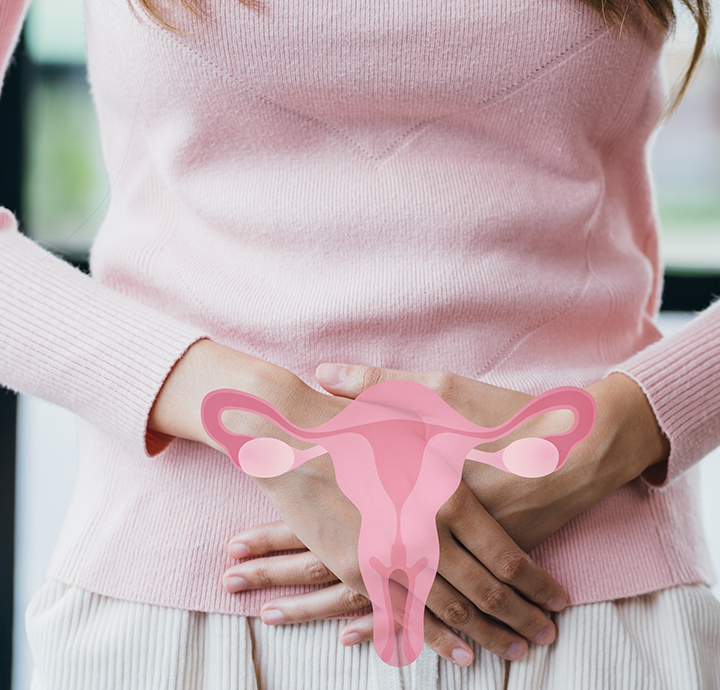
Egg freezing is simply defined as a method used for long-term storage of eggs. Within the scope of the process, it ensures that the eggs or female reproductive cells collected from the female ovaries by ultrasonography are stored under appropriate conditions.
Today, it has managed to stand out as a widely used method and many women think about "should i freeze my eggs". Egg freezing, which is a medical method that allows women to freeze and store their eggs under appropriate conditions, makes pregnancy possible at a later date by transferring to a woman's uterus by in vitro fertilization method if desired in the future. Those who have egg-freezing procedures can apply these treatment methods for many different reasons.
If egg freezing procedure is performed smoothly, the chance of pregnancy is provided for future periods. As a treatment procedure that enables women to have children in the future, it offers a method that is widely used not only in Turkey but also in many parts of the world. Cost of freezing eggs and other procedures vary according to the places where the treatment will be performed.
Egg freezing is a medical method that allows women's eggs to be frozen and stored. Eggs can be transferred to the woman's uterus using the in vitro fertilization method in the future at any time to ensure a future pregnancy. Women of a certain age group can generally benefit from egg freezing. Eggs are collected under appropriate conditions and stored for the long term within the scope of this treatment.
In general, two stages stand out in the freezing egg process. The first of these stages is ovarian stimulation. At this stage, hormone therapy is applied to stimulate the growth of the ovaries and egg production. The treatment usually lasts 10 to 12 days. It is possible to freeze the ovaries for many different reasons.
Some conditions must be met for egg freezing to be performed. Among these conditions, it is applied to people who have been approved by 3 specialized doctors with a medical board report that the egg reserve has decreased before operations such as chocolate cyst, or cancer surgery. After low ovarian reserve, people are enabled to have a baby with this method in the future.
Egg freezing process generally stand out as a suitable method for women between the ages of 25-37. This is the answer to "What age to freeze eggs" question. In women in this age range, egg reserve reaches the highest levels. Since the chance of pregnancy is also high, egg-freezing procedures will need to be performed during these periods. Regardless of variables such as egg freezing in singles, the suitability of patients will be the basis here.
According to the regulation published on the subject in October 2014, it can be applied before operations such as cancer treatment, chocolate cyst, cancer surgery, or in cases where the egg reserve is approved by 3 specialist doctors with a medical board report. These methods are resorted to in cases where reproductive functions will be lost in women. Accordingly, freezing can be performed for suitable patients. Women who want to have children in the future and whose egg reserves will decrease are supported to have children in the future by applying this method.
Many women may wonder about "how does freezing eggs work". Egg collection procedure may vary according to the patient's condition. Vaginal or abdominal egg collection can be performed. After this procedure, egg cells are frozen by the vitrification (fast) freezing method. The frozen egg cells are frozen at -196 °C. They can be stored for 5 years in special storage tubes containing liquid nitrogen. It is extremely important to create suitable conditions for freezing the ovaries and to work with the right clinics.
In ovarian freezing procedures, the ovaries are first stimulated. Hormone therapy is usually used for this. Then, in the second stage, the process of collecting the eggs begins. The eggs collected by ultrasonography are stored in a laboratory environment. This process may be more difficult in older people. Reproductive efficiency decreases in women with advancing age.
In the egg collection process, eggs are taken from the ovaries with a needle under ultrasound guidance. The procedure is usually completed in a short time. People who want to have a child are also allowed to do so at a later date. In particular, people who will have a decrease in reproductive functions for medical reasons are supported to have children in the future with egg-freezing procedures.
The healing process in egg-freezing procedures is usually short and painless. Immediately after the procedure, the patient is kept under observation in the hospital within a few hours. The recovery process is provided by resting at home. With the help of being a painless and easy procedure, the process is easily completed. The age and suitability of the woman are one of the most important issues in making the treatment applicable.
Egg collection is usually performed under sedation or general anesthesia. The patient may feel drowsiness or dizziness after the procedure. This can be relieved with painkillers. If the patients who want to freeze their ovaries are suitable candidates and follow the expert recommendations after the treatment, the recovery process will be smooth.
Within a few days after the procedure, patients may also complain of mild abdominal pain, cramps, or bloating. These complaints usually disappear spontaneously. These reserves, which will be taken from people according to the egg productivity in the ovaries, can be used with IVF treatment to have children in the future. It is important that the patients are fully compatible in this respect.
Egg-freezing procedures have many advantages. Thanks to these advantages, women are ensured to maintain their fertility later on. Egg freezing eliminates the risks that women may face due to the decrease in egg reserves as they age. It is a suitable treatment for women whose egg development is healthy before the freezing procedure. In general terms, the main advantages of egg freezing are as follows:
Egg freezing is an important medical method that provides women with the opportunity to have children in the future. Egg-freezing procedures have many more similar advantages. With his wide range of clinical facilities and expertise, Op. Dr. Nurettin Türktekin always provides expert support in egg-freezing treatments.



Ovarian cysts are fluid-filled sacs or vesicles seen inside the ovary. Normally, during each menstrual period, a cyst called a follicle, which carries the egg cell and can reach 3 cm in size, forms in the ovaries. Then this cyst cracks and the egg is released. In young girls with ovulation problems, normal or physiological follicle cysts that cannot rupture can grow every month and reach 5-10 cm, while small numbers of 0.5-1 cm in size, which we call polycystic ovaries, can be seen in series. Apart from these functional cysts, benign or malignant ovarian cysts can also be seen in all age groups.
Except for the most common functional ovarian cysts, cysts can be benign or malignant tumoral cysts. In addition, as a result of infection, abscess-shaped cysts may occur, which is usually accompanied by pain and high fever.
The appropriate ages for egg freezing in women are determined as 25-37 years. In general, if the egg cells are healthy until the age of 40, it is seen that the procedure can be performed until this age. The important point here is the presence of healthy egg cells.
The main goal of egg freezing is to increase the chance of having a child in the future. For women undergoing treatments that affect ovarian reserve or whole body physiology, such as chemotherapy, it is difficult to get pregnant because the chance of pregnancy will decrease. The purpose of frozen eggs is to increase the chance of pregnancy.
Sperm freezing price and procedure process vary depending on many factors. Therefore, a price determination should be made according to the condition of the patients.